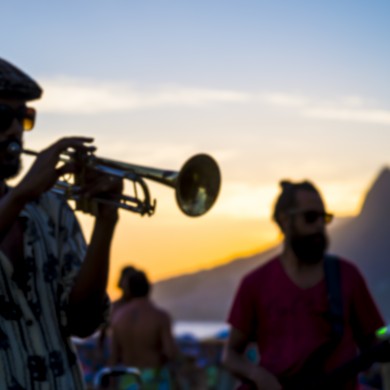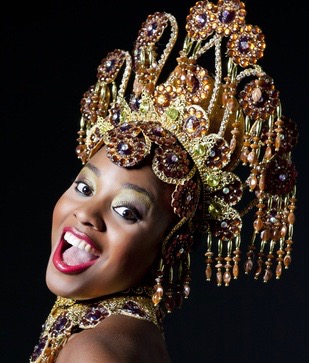In likeness with the country, the literature of Brazil was developed through the teachings brought from the old world in the fourteenth century by Portuguese explorers and settlers.
It was initially a remnant of the scripts of Portuguese writers landed on the new continent. However, in the nineteenth century it became the expression of a new generation of authors, trying to build the basis of a cultural identity and a literary science that was truly Brazilian.
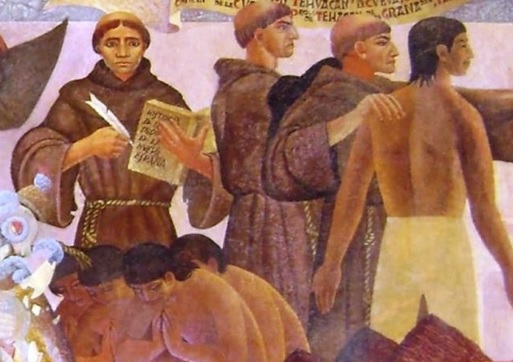
A literary history born from the colonization of Brazil
One could assert that Brazilian literature only began with the independence of the country in 1822, the previous works belonging to authors of Portuguese origin, settled in Brazil as a result of the successive waves of colonization from the fourteenth to seventeenth centuries.
We should also consider however, that everything that happened in Brazil in the first decades of its recorded history was due to Lusitanian influence.
Following this point of view, one would deduct that the birth of Brazilian literature came with the arrival of settlers, often missionaries or Jesuits.
The first movements of Brazilian literature
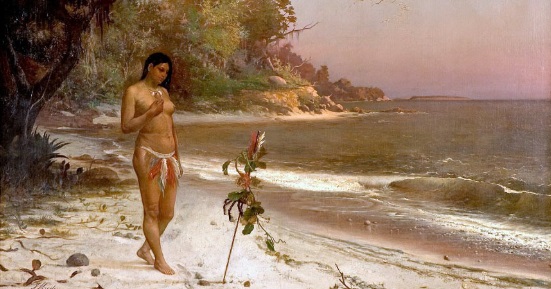
Chroniclers of Brazilian colonial life
The first writings from the Jesuits are affiliated with the so-called colonialist movement. They aimed essentially to describe the way of life of the native peoples, and bring it back to Europe, for the imperial crown. These missionary fathers wrote mainly in Portuguese and Latin, also in tupi, as did José de Anchieta, who was a writer and poet. The main purpose of these studies was to convert native people to the Catholic religion.
The Baroque movement then came in reaction to the rigor of the Protestant Reformation. It displayed more emotion than arid intellectualism. A Portuguese poet and a great traveler, Gregório de Matos Guerra distinguished himself by a satirical writing often aimed at religion and corruption of all kinds in the seventeenth century. Paradoxically, one of the most famous representatives of this movement was a Jesuit father, Antonio Vieira. In addition to his famous sermons, he displayed a rare intellectual modernity by being one of the first to denounce slavery and the inquisition, and by defending the persecuted Jews.
In the eighteenth century, a new trend appeared that remained very important in the intellectual construction of the Brazilian identity: Arcadia, or pre-Romanticism, led the authors to portray for the first time the figure of “the Indian”. The “good savage” embodied Mother Nature and this brought the settlers to a certain national consciousness. José Basilio da Gama, better known by his pen name of Termindo Sipílio, installed the notion of the Indian in the South American world. Pre-Romanticism brought indigenism, a precursory movement of romanticism.
The emancipation of Brazil from the Portuguese crown at the beginning of the nineteenth century led to new writers proclaiming themselves openly attached to their new country: Brazilian romanticism marched forward, tinged with a strong feeling of nationalism. The notion of being Brazilian was contiguous with the identity of the Indian, but still all but ignored the existence of blacks. The works of the poets Goncalves Dias or Alvares de Azavedo, playwrights Louis Carlos Martins Pena or José de Alencar tend to this desire to create a perennial image of Native Americans, similar – not always realistically – to the Indians. De Alencar especially attached himself to the very concept of Brazilian nationality.
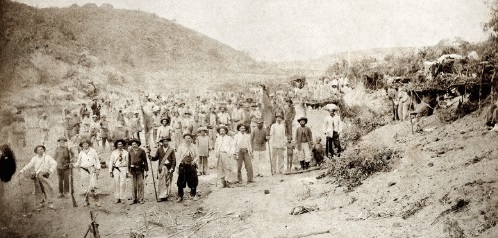
The rise of Brazilian literature in the 20th century
A new movement emerged in the late nineteenth century, realism. Its representatives, Joaquim Machado de Assis for example, would write about real life and its difficulties. They would also begin to dissect the underpinnings of politics and in a sense become committed to this. Euclides da Cunha defined Brazilian culture by its national character. His work abandoned the known shores of the Atlantic cities to portray the men of the interior, the “Sertão” and especially the lands of the Nordeste with the major work of classic Brazilian literature, “Os Sertões”. Lima Barreto goes much further by describing the miserable world of the little people, and mocking the rich and the rulers as in the novel “Triste Fim de Policarpo Quaresma.”
From the twenties, modernism would follow pre-modernism, they would both try to denounce the cultural mentalities of the past through a language “free” of its archaisms. Manuel Bandeira, Oswald de Andrade and more recently Carlos Drummond de Andrade, a major poet of Brazilian Modernism are the most significant representatives.
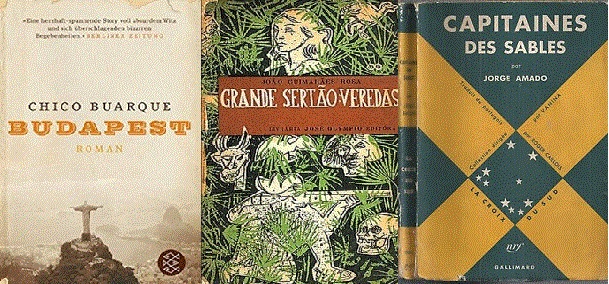
Contemporary Brazilian literature
The contemporary period is a reflection of Brazil’s literary openness to all forms of expression. Contemporary Brazilian literature fully takes into account the political and social reality of the country, with strong denunciations against the powers that be. Journalist, columnist and novelist, Graciliano Ramos was, in the first part of the twentieth century, the most influential author through his writings denouncing the dictatorships of the world, starting with that of his country, embodied by Getúlio Vargas who would stop and imprison him.
Another, often considered one of the “greats” of Latin American literature was João Guimarães Rosa, who talks about the hard life of the Brazilian countryside. His famous work, Grande Sertão: Veredas (The Devil to Pay in the Backlands), of romance and love, adventurous and philosophical in nature, tells the epic story of Riobaldo and his companions, through time and the vast arid spaces of Brazil.
The other great figure of this century is obviously Jorge Amado. His work describes the misery that reigns in the lowlands and denounces the tyranny of indiscriminate powers. Like Ramos, Amado lived part of his life in forced exile during the dictatorships, and it was only after the return to democracy that he was able to return to his country, celebrated and highly regarded. He is the Brazilian author with most adapted works to television and cinema.
Like all means of expression, literature cannot be cut off from global artistic reality and some of the greatest Brazilian poets of the twentieth century made themselves known to the general public through a related art form. This is of course the case for Vinicius de Moraes, a world-renowned and recognized diplomat and poet, for his essential contribution to the development of Bossa Nova. Author of more than 400 songs, he also wrote many poems which, even if they did not attract the notoriety of some of his most famous songs, contribute to the construction of a dreamlike literature of pure Brazilian essence. Less prolific but in the same vein as his illustrious elder, the composer-performer Chico Buarque de Hollanda has also written some books, some of which are very highly regarded such as “Budapest.”
At the beginning of the twenty-first century, Brazilian literature has definitively established its foundations and, like other major cultural countries, offers multiple themes and styles: many authors adopt the path of raw realism (found in Brazilian cinema) to describe the hard life of favelas (Paulo Lins or Fernando Bonassi) or problems in families ( Lydia Fagundes Telles or playwright Nelson Rodrigues ). The detective novel is also present in the literary landscape with Ruben Fonseca or Luiz Alfredo Garcia-Roza, and the best-selling novels also have pride of place with Paulo Coelho, the biggest “salesman” abroad, but whose “poor” style and “elusive and mystical” inspiration is often vilified by Brazilian critics.







